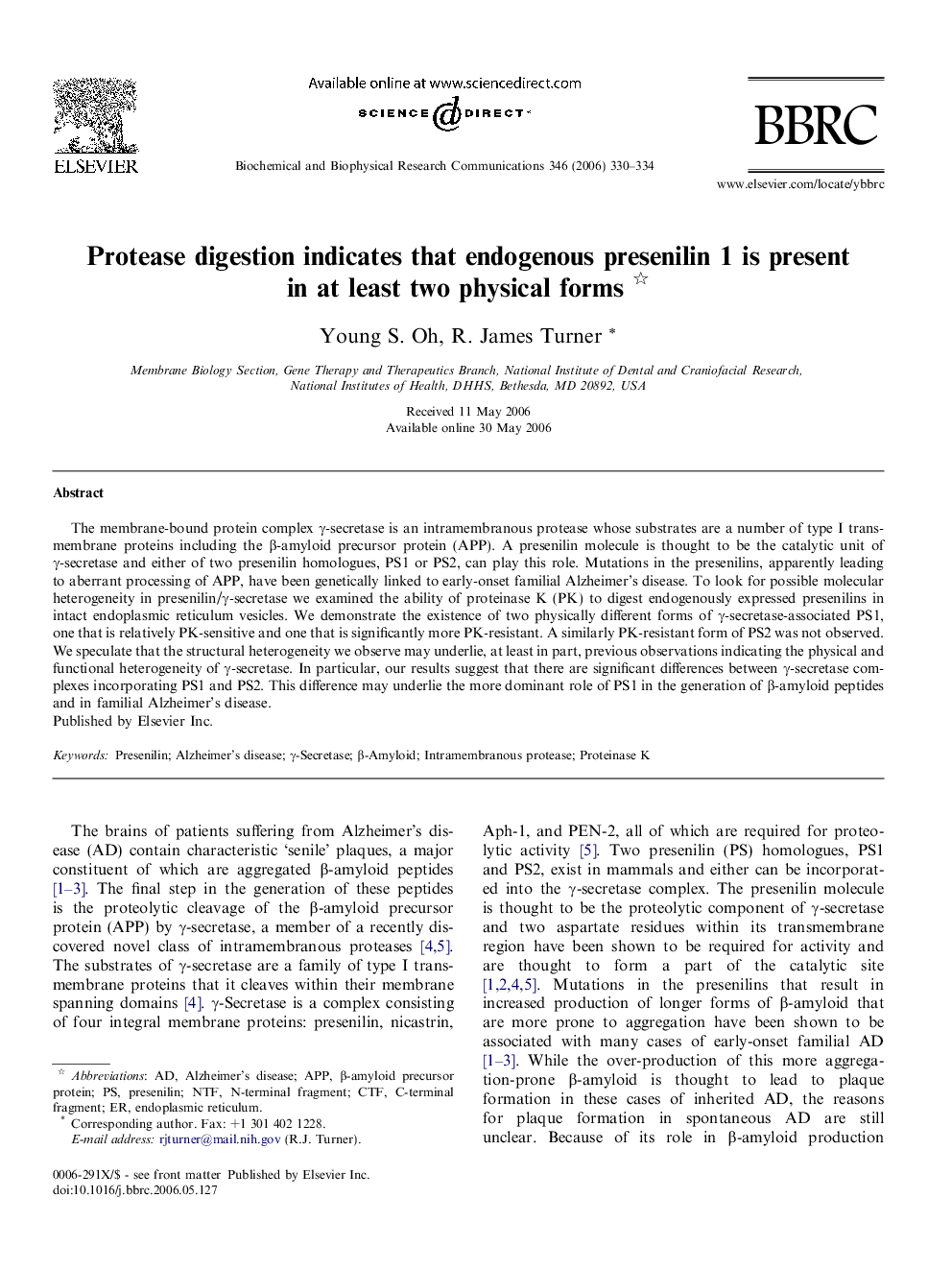| Article ID | Journal | Published Year | Pages | File Type |
|---|---|---|---|---|
| 1940150 | Biochemical and Biophysical Research Communications | 2006 | 5 Pages |
The membrane-bound protein complex γ-secretase is an intramembranous protease whose substrates are a number of type I transmembrane proteins including the β-amyloid precursor protein (APP). A presenilin molecule is thought to be the catalytic unit of γ-secretase and either of two presenilin homologues, PS1 or PS2, can play this role. Mutations in the presenilins, apparently leading to aberrant processing of APP, have been genetically linked to early-onset familial Alzheimer’s disease. To look for possible molecular heterogeneity in presenilin/γ-secretase we examined the ability of proteinase K (PK) to digest endogenously expressed presenilins in intact endoplasmic reticulum vesicles. We demonstrate the existence of two physically different forms of γ-secretase-associated PS1, one that is relatively PK-sensitive and one that is significantly more PK-resistant. A similarly PK-resistant form of PS2 was not observed. We speculate that the structural heterogeneity we observe may underlie, at least in part, previous observations indicating the physical and functional heterogeneity of γ-secretase. In particular, our results suggest that there are significant differences between γ-secretase complexes incorporating PS1 and PS2. This difference may underlie the more dominant role of PS1 in the generation of β-amyloid peptides and in familial Alzheimer’s disease.
